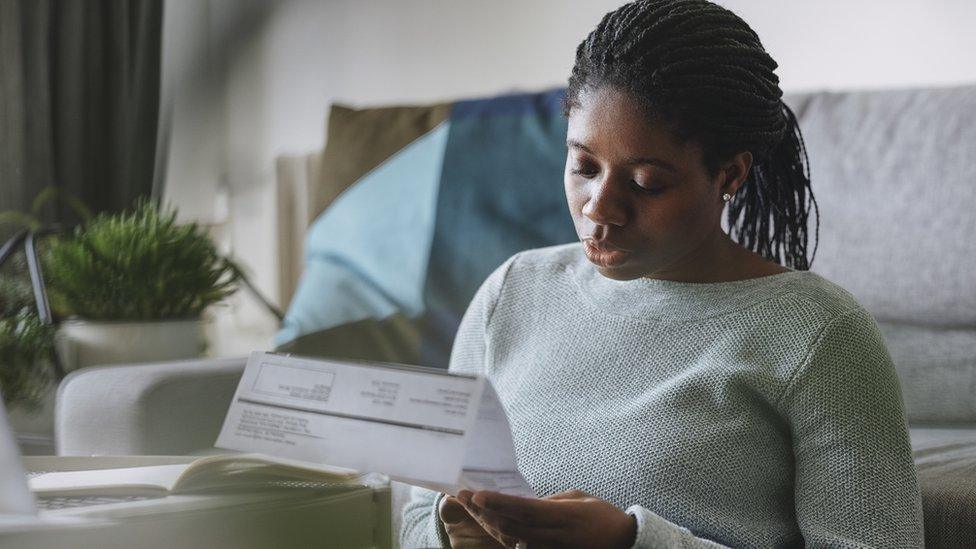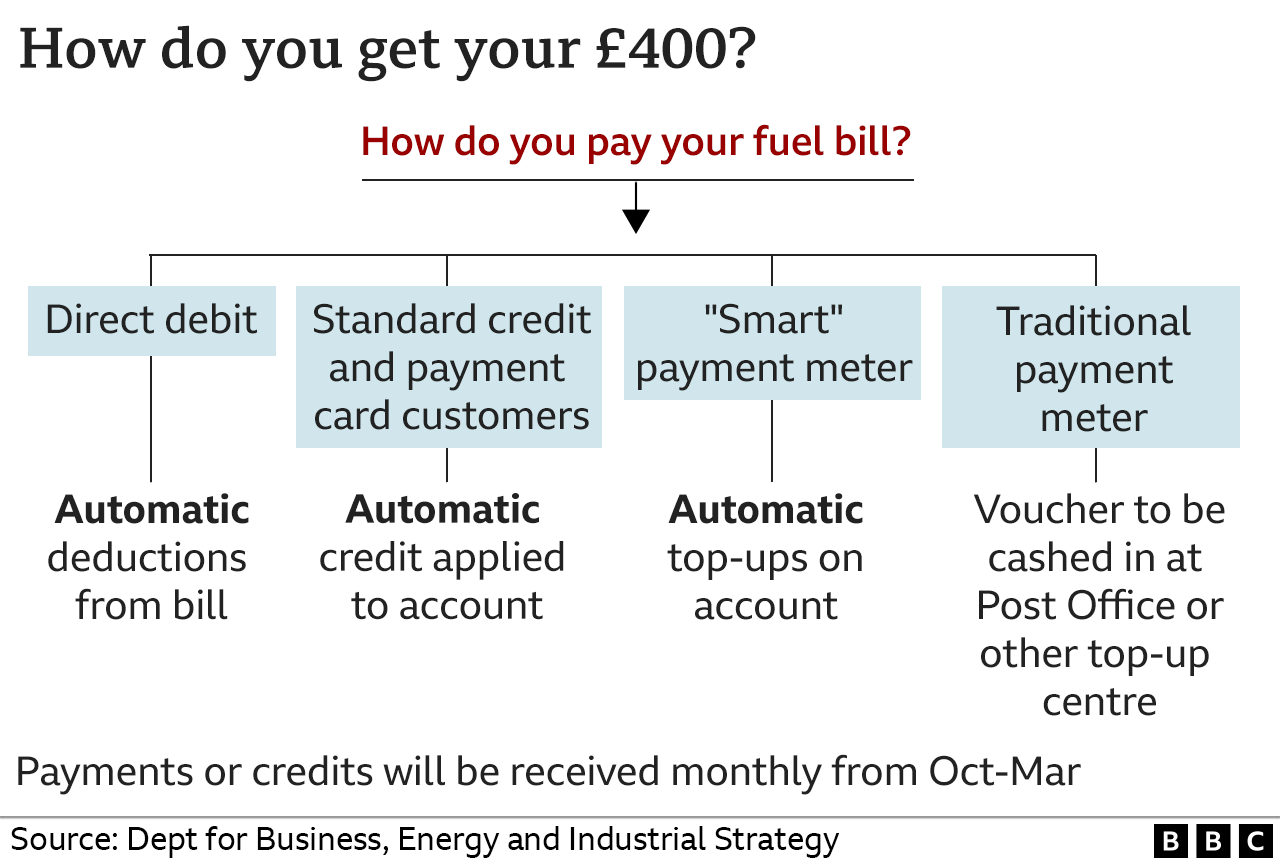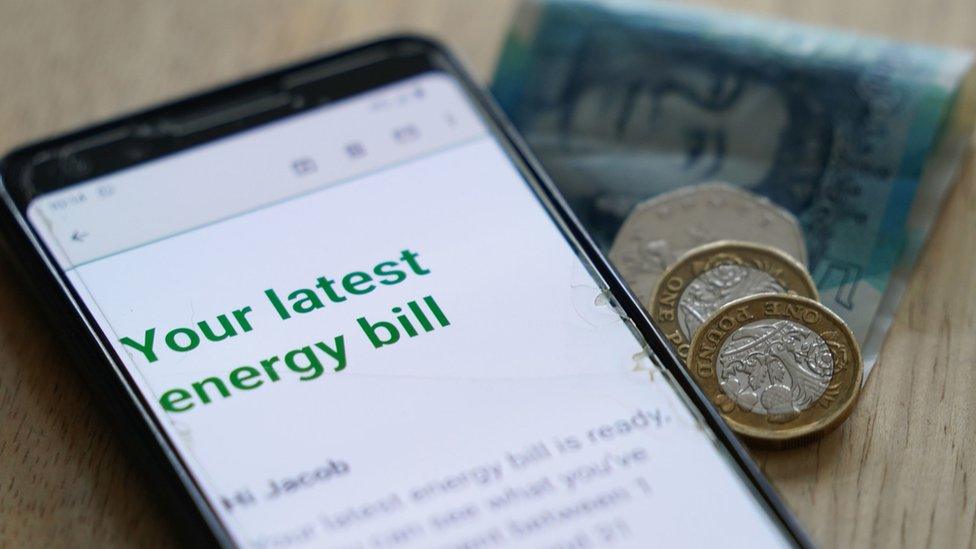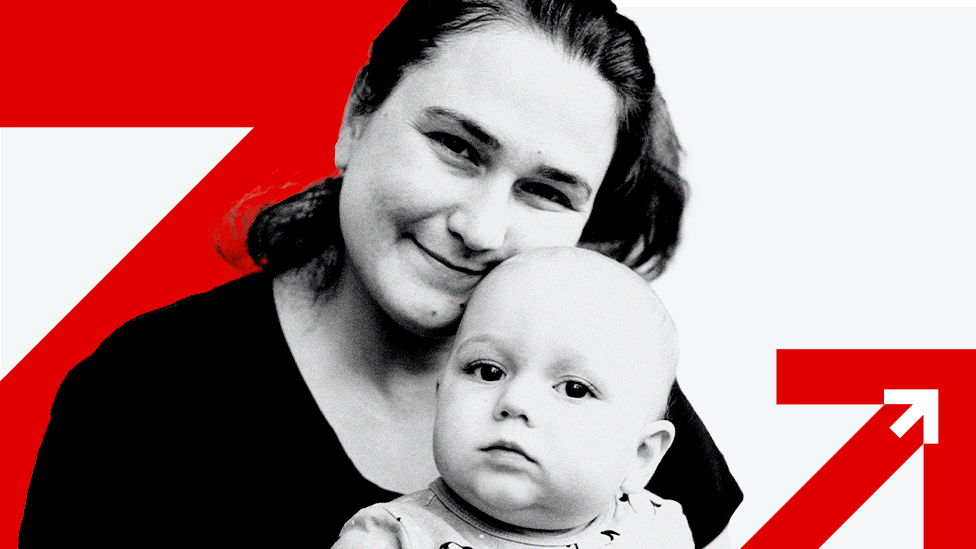Energy bills: New law will force landlords to pass on £400 rebate
- Published

Landlords will be forced through legislation to pass on the £400 energy rebate to tenants with all-inclusive bills, the government says.
Charities had raised concerns that tenants whose bills are included in their rent could miss out because the rebate is paid to their landlord.
But a body representing landlords said plans for legislation "demonised" them.
An estimated 585,000 households, external - 13% of private renters - have energy bills included in their rent.
The government confirmed legislation would be introduced to make sure landlords pass on the discount as it announced its energy support for businesses.
It had previously said it expected landlords to pass on the rebate but had not said there would be legislation to enforce this.
The government has announced a package of measures to help households with the rising cost of living, including a £400 discount on energy bills.
The money will be paid in six instalments, with a discount of £66 applied to energy bills in October and November, and £67 a month from December to March 2023.
How the money is received will depend on how you pay your bill.
However, for tenants whose energy bills are included in their rent, their landlord would receive the discount as they are the bill payer.
Charities, including Shelter and Citizens Advice, had previously raised concerns some landlords would not pass on the support if there was no legal obligation to do so.
Some tenants also said they were worried their landlord would increase their rent if they asked for the discount to be passed on.
Zoey, not her real name, has her bills included in her rent and has not heard anything from her landlord about the £400 rebate.
She said the money would "mean the world" and be "a huge relief".
"I would have a food budget for a while at least... I could pay off credit card debts that I've accumulated," she said.
The 39-year-old has been struggling with soaring fuel bills as she has to drive to work. Her rent has also increased by £50 a month and she expects it to rise again later this year.
However, she is still sceptical about whether she will get the £400 rebate in practice and said she would only believe it when it arrives in her bank account.
Housing charity Shelter said it was "absolutely right" the energy rebate was passed on to tenants.
"It's not fair for struggling renters to be left at the mercy of their landlords for this much needed help when so many are having to count every penny this autumn," chief executive Polly Neate said.
Gillian Cooper, head of energy policy for Citizens Advice, said: "We're relieved to see the government bring in measures to make sure people don't miss out on money they're entitled to.
"But it's still shaping up to be an incredibly difficult winter and the government must be ready to provide more support for families struggling the most."

However, Chris Norris, policy director for the National Residential Landlords Association (NRLA), which represents private landlords in England and Wales, said: "Given payments under the support scheme have not begun to be made, the government's plans to legislate are premature and are demonising landlords unnecessarily.
"It sends a dangerous and misleading message that landlords cannot be trusted to do the right thing, creating needless fear and anxiety for tenants."
There is unlikely to be time to pass new legislation before October as Parliament is in recess from 23 September until 11 October for the Labour and Conservative Party conferences.
It is unclear if this will delay the rebate being passed on to tenants.
The energy support package for businesses, which will see their bills cut by around half their predicted level this winter, also requires legislation.
The scheme will fix gas and electricity prices for companies for six months from 1 October.
The government has said the savings for businesses will first be seen in October bills, which are typically received in November.
Earlier this month, Prime Minister Liz Truss announced plans to limit energy bill rises for all households for two years.
It means the typical household energy bill will be capped at £2,500 annually until 2024.
An earlier version of this story said the NRLA welcomed the announcement as "good news". This has been updated with a new statement from the association.
- Published3 August 2022

- Published22 September 2022

- Published15 February 2024
